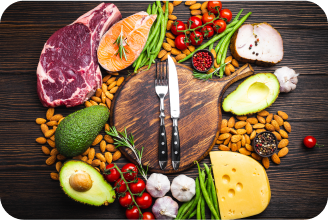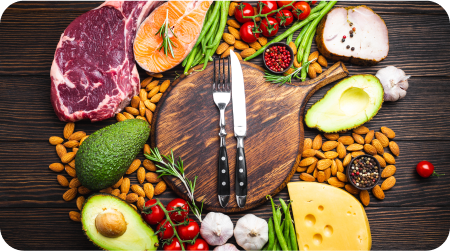
The ketogenic diet relies on a specific macronutrient composition to achieve and maintain ketosis,
with a focus on high-fat, moderate-protein, and very low-carbohydrate foods. Key staples of the keto
diet include healthy fats such as avocados, nuts, seeds, and oils like olive oil and coconut oil.
These fats provide the primary source of energy for the body in the absence of carbohydrates.
Protein is also an essential component of the keto diet, though it is consumed in moderate amounts
to prevent gluconeogenesis, where excess protein is converted into glucose. Good protein sources for
keto dieters include fatty fish like salmon and mackerel, meat such as beef, pork, and poultry, and
eggs. These foods help maintain muscle mass and provide essential amino acids while keeping
carbohydrate intake low.
Vegetables that are low in carbohydrates but high in fiber and nutrients are crucial for a balanced
keto diet. Non-starchy vegetables such as leafy greens, broccoli, cauliflower, and zucchini can be
included in meals to provide vitamins, minerals, and antioxidants without disrupting ketosis. It is
important for keto dieters to avoid high-carb vegetables and fruits, such as potatoes, corn,
bananas, and grapes, to maintain the desired metabolic state. By focusing on these keto-friendly
foods, individuals can effectively manage their diet and enjoy the benefits of ketosis.







